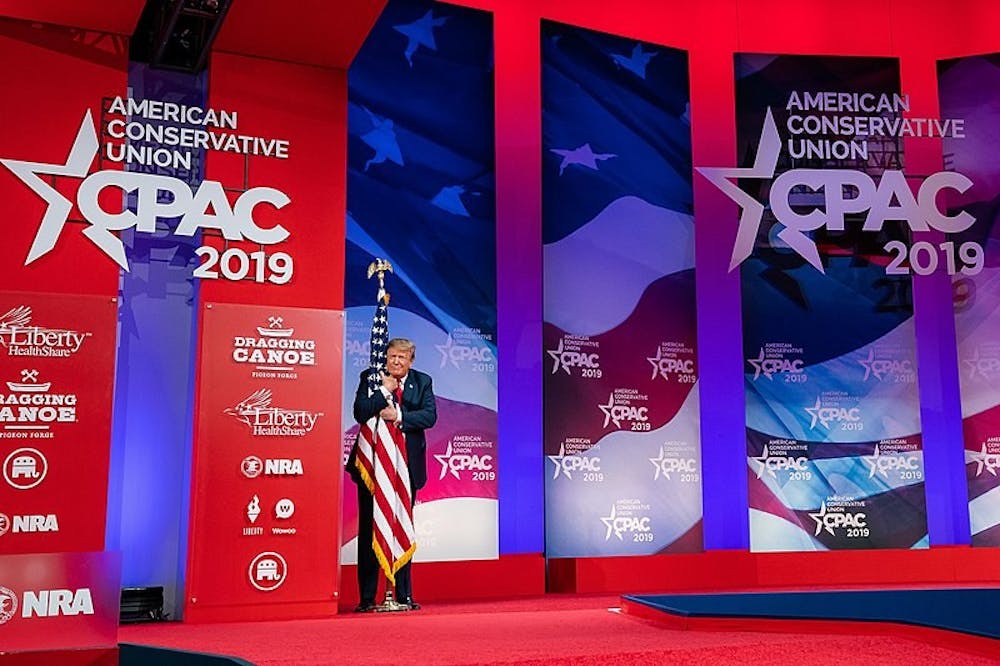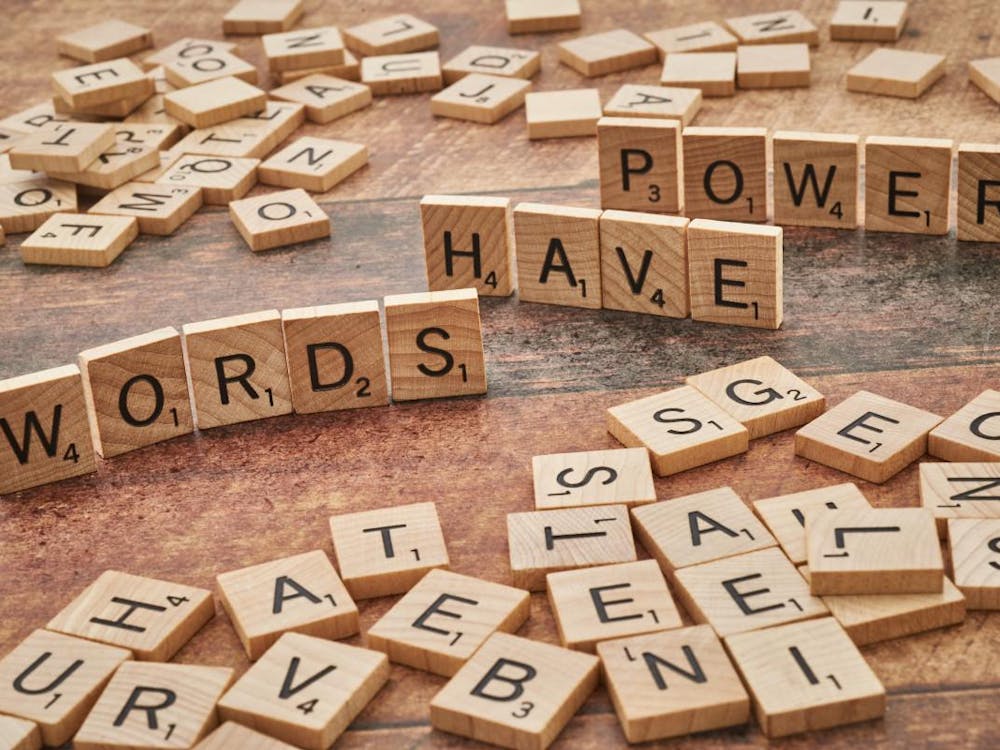As a member of Quipfire!, an improv comedy group on campus, I know the elements of a comedic performance when I see one. Donald Trump’s words and actions on stage at CPAC 2019, the annual gathering of conservative activists, held this year in National Harbor, Maryland, proved more similar to an absurdist one-man improv show than a direct address by the president of the United States. He began the two-and-a-half-hour speech by hugging the American flag and declaring, “You know I’m totally off-script right now.” The improv performance was filled with voices, impressions, expletives, and absurd untruths.
Trump covered a variety of issues not uncommon for his stump speeches and stadium rallies—namely, the border wall, the Russia investigation led by Robert Mueller, his own electoral victory in 2016, and the supposedly evil tendencies of members of the Democratic Party. But the strangeness of Trump’s speech came forth in the manner in which it was delivered, in the performance of his rhetoric and his political convictions. Trump’s protracted CPAC speech stands as an emblematic symbol of the dangers of our performative politics and comedy that punches downward.
Trump performed a surprisingly spot-on impression of former Attorney General Jeff Sessions, did a bit about a couple unable to watch television because no wind was blowing to power the wind turbines fueling their house’s power, pretended to be a U.S. Army general giving him status reports, and carried out an energetic demonstration of people who used to call him “Donny” but now call him “Mr. President, sir.”
Trump didn’t stop there. The president levied an attack against senators with white hair, as compared to his own blonde locks and ultimately topped the entire performance by claiming that Mueller was a “bad, bad, bad man” who was trying to take down the president with “bullshit.”
This performance was hardly a speech. It was political theater to the most absurd, characterized by ludicrous statements and wild routines by the leader of the free world. The president of the United States, in his two and a half hour ramblings, seemed as if he belonged on stage at a comedy club rather than at CPAC. Trump had become the Saturday Night Live caricature of himself.
Trump’s theatrics conflated truth with falsehood and facts with fiction in the most insidious of ways. By levying comedy and mockery on his side, Trump demonstrated a new level of performative debasement in American politics. At a time when national problems are rampant and the fabric of our nation shows signs of breaking, Trump scoffed at such challenges. In fact, he turned them into material for his comedy act. While mixing truth and falsehood is nothing new for this administration, the speech was also almost entirely fluff: amid two and a half hours of rhetoric and speech, Trump announced one, only one, piece of substantive action.
After railing against the countless problems with our nation today, Trump declared that he would sign an executive order to defend free speech on college campuses, claiming that colleges would be denied federal funding if they did not have measures in place to support free speech on their campuses. While the issue of free speech is obviously important in a democracy such as ours, the fact that this was the only mention of policy and concrete action moving forward in Trump’s two hours of talk time sends a message of mismatched priorities and dangerous neglect for our nation’s other problems.
Comedy is a dangerous weapon. Comedy that punches upward, that targets the unjust, inconsistent, and flawed aspects of society, represents the ideals of satire. It critiques that which is wrong and that which remains problematic in any society, group, or government.
But comedy that punches downward does the opposite.
When comedy crushes the cries of truth and the realities of wrongdoing, it is a tool to disempower, silence, and delegitimize the voices of those who speak frankly about our society. Our president’s actions on the floor of CPAC levied comedy and theatrics in order to silence the truth underlying our nation today. It is a dangerous addition to our chaotic political moment — one in which mockery and comedy can serve the delegitimization of authentic and honest concerns.
Kaveh Badrei is a junior Wilson School concentrator from Houston, Texas. He can be reached at kbadrei@princeton.edu.









